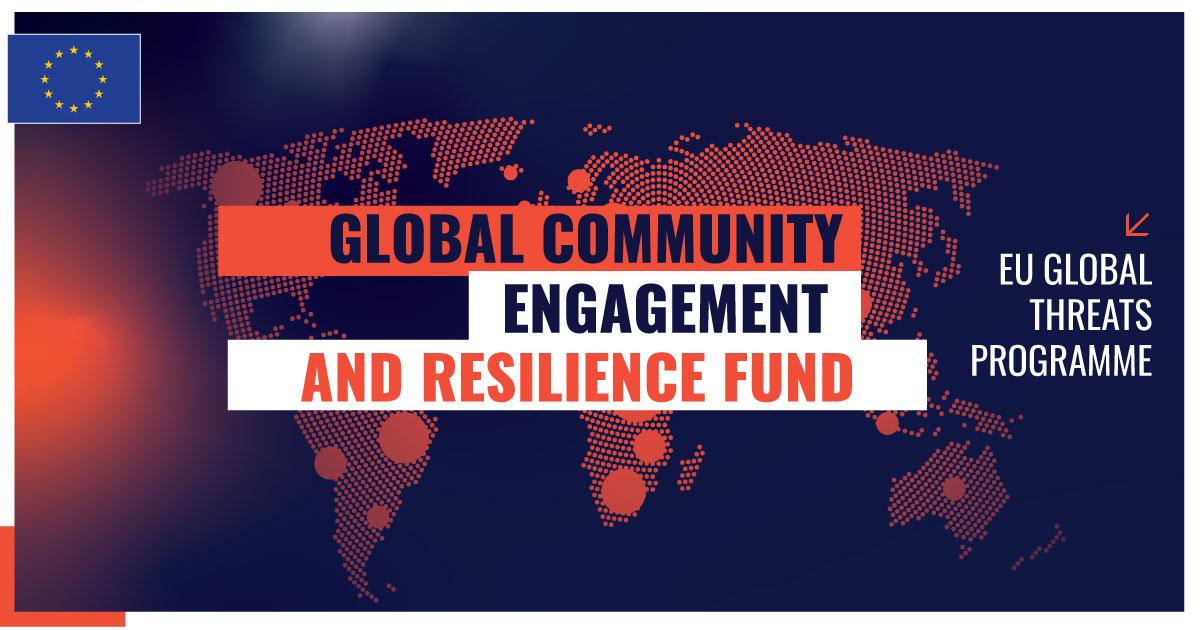
Context
Since the adoption of the EU Counter-Terrorism Strategy and the Strategy for Combating Radicalisation and Recruitment to Terrorism in 2005, the EU has stressed the importance of preventing terrorism by addressing radicalisation and recruitment. It is within the context of the CT Strategy’s Prevent pillar that the EU has been engaging with the Global Community Engagement and Resilience Fund (GCERF). GCERF is an independent foundation that was founded in 2014 as a public-private partnership governed by a multi-stakeholder board. GCERF’s mandate is to respond to the ongoing threat of global terrorism and the need to bridge the security-development nexus. Its funding model represents a strategic effort to support initiatives to counter radicalisation and violence in order to achieve sustainable, lasting impact within a wider global context of long-term peace, security, and development. The EU is part of the governing board and is committed to working closely with GCERF, under the STRIVE Global action, to support grassroots P/CVE initiatives around the world.
Overall objective
This project aims to build the capacity of state and non-state actors to effectively challenge radicalisation and recruitment to terrorism while continuing to respect human rights and international law.
Specific objectives
- To engage with local partners to design, implement and develop approaches that have a demonstrable impact on the threat posed by radicalisation and recruitment to terrorism.
Concrete activities
- Providing grants to initiatives aimed at strengthening resilience of communities to violent extremism by funding capacity-building activities for community-level initiatives.
- Providing civil society with much-needed access to politically neutral resources, as well as bridging the gap between donor funding at the international and national levels and community-level projects at the local level.
- Facilitating state, private sector, and civil society collaboration.
- Building the resilience and capacity of supported initiatives, as assets to their communities and countries.
- Supporting creative and entrepreneurial initiatives.
- Supporting the rehabilitation and reintegration of former foreign terrorist fighters and their families.
Results1
- 24,600 individuals trained in PVE and critical thinking skills.
- 21,800 individuals engaged through interfaith dialogues, intergenerational dialogues and consultations to strengthen solidarity, resolve conflicts and improve trust between government agencies and community members.
- 16,100 individuals equipped with knowledge, seed-grants, skills, training and tools to strengthen their economic resilience against violent extremism.
- 9,100 individuals reached through training and engagement in conflict resolution processes.
- 8,200 individuals trained in combating online radicalisation.
- 6,200 individuals provided with counselling and psychosocial support to overcome trauma associated with violent extremism.
- 1,700 returnees received holistic rehabilitation and reintegration support covering psychosocial, economic, educational, legal and administrative needs.
Achievements
- The organisation has provided grants of varying scale and duration to over 400 local organisations and it has reached more than 4,5 million people at risk of radicalisation.
- Successfully transitioned GCERF’s support in Bangladesh by building sustainable, locally-led P/CVE structures that continue to operate independently beyond direct funding.
- GCERF has supported the rehabilitation and reintegration of thousands of former terrorist fighters and their family members from Al Hol and Al Roj camps in Northeast Syria into their communities of origin across Albania, Bosnia and Herzegovina, Indonesia, Iraq, Kosovo, Kyrgyzstan, North Macedonia, and the Philippines. To date, there have been no recorded cases of recidivism into terrorist activity.
- GCERF grants have engaged with parents and teachers as agents of changes and created school/madrasa management committees that became an effective monitoring tool to identify early warning signs of violent extremism and provide a safe space to address students’ behaviour.
1 In 2024
- Start date
- 12 Jan 2015
- Project locations
- AlbaniaBangladeshBosnia and HerzegovinaBurkina FasoChadIndonesiaIraqKazakhstanKenyaKosovoKyrgyzstanMaliMauritaniaMozambiqueNigerNigeriaNorth MacedoniaTajikistanPhilippinesSomaliaSri LankaTunisiaUzbekistanYemen
- Overall budget
- €40 000 000
- Threat area
- Counter-Terrorism, Prevention of Violent Extremism
